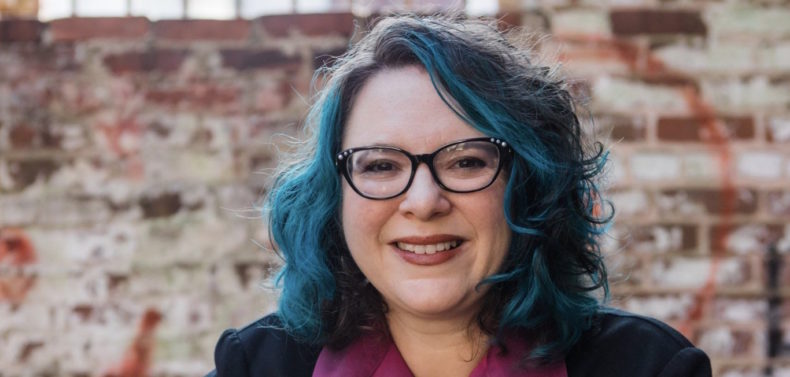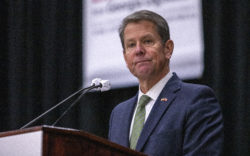Before University of Georgia students returned to campus, faculty members were asked to draft an instructional plan describing how they planned to deliver their courses, whether in person or online. Some teachers say that after they heard concerns over safety from their students and opted for online instruction, their department heads advised them to adhere to their initial plans in order to avoid a potential audit from the University System of Georgia.
Shira Chess, an associate professor in UGA’s Department of Entertainment and Media Studies, said she and her colleagues received an email from their department head on Aug. 26, in which he noted that “votes or surveys of what your students in your class wish to do unfortunately will not constitute a justification for diverting from your approved instructional plan.”
The source of this information about potential audits is not clear, however. University System of Georgia Vice Chancellor for Communications Aaron Diamant said in an email that USG has not “hired or redirected anyone to do this.” Likewise, UGA Interim Senior Director for Marketing & Communications Greg Trevor said in an email that the university is not aware of any pending audits.
“While we are not aware of any pending audit, we are aware of some parental concerns expressed about an apparent lack of transparency by some in describing their courses for the fall semester,” Trevor said. “UGA faculty filed instructional plans indicating whether their courses would be delivered in person, through a hybrid model, or online. Students selected their fall semester courses based on that information. We need to honor our commitment to our students.”
Chess was required to create an instructional plan before classes started, but she said some professors in other UGA departments were not. And if professors are asked to honor their commitment to students, she said, they should be allowed to modify their instructional plans to accommodate their students.
“The statement [from USG] does not clarify that they will not audit or had not previously planned to audit,” Chess said. “These intentional vagaries are meant to create a culture of fear. The reality is, threats of auditing are coming from somewhere. If it’s not coming from USG, then where is it coming from?”
Jay Hamilton, head of the Department of Entertainment and Media Studies, who relayed the information about potential audits to his faculty, declined to comment. In the email—which Chess shared on Twitter—Hamilton said his primary intention in sharing the information was “to make sure that none of you unknowingly stick your necks out. I don’t like this situation any more than you.”
All the students in one of Chess’ courses elected to attend class virtually through Zoom. But after hearing she could potentially face an audit if she’s not present in the room on the day and time her class is scheduled—even if none of her students choose to show up to class in person—she now interacts with her class on video while sitting in her classroom by herself and wearing a mask.
“I’m concerned that nobody is taking ownership of the threat,” Chess said. “It came from somewhere. No effective learning comes from keeping people uncomfortable and afraid. Nobody is going to learn better by forcing students into a classroom; nobody is going to teach better by forcing faculty to teach in specific ways.”
Considering social distancing guidelines and the mask mandate, some courses would make more sense if they were conducted virtually, especially upper-level courses that require a lot of discussion, according to Janet Frick, an associate professor of psychology. She said some departments were fairly liberal in allowing their faculty to teach their courses with limited in-person instruction, while others were not.
“It’s hard to have a discussion in a mask if everyone can’t all be in the same room,” Frick said. “It is a logistical challenge. You either need a room big enough for everyone to be there and spread out with good sound equipment, or you need to be on Zoom.”
At the time of publication, Frick had not personally heard from her own department head about any potential audits, but she and Chess both said they’ve heard from other faculty members across campus who were warned about audits for instructional plan deviations.
“UGA and USG like to brag about professionalism and their faculty,” Chess said. “If that’s true, they should be trusting us to know the best ways to teach our own classes. Administrators who don’t teach classes should not be dictating the best ways for us to educate our students.”
As a parent of a college student herself, Frick said she understands why some parents and students would feel frustrated about a class deviating from its instructional plan, as Trevor mentioned. Some students may have back-to-back classes, with the first class online and the second class in person. This schedule may require a student to attend the online class from somewhere on campus, since they wouldn’t have time to leave their house and get to campus for their second class.
But at the same time, professors should be allowed to listen to their students about how they can best be accommodated, Frick said. If one of her students wishes to attend class on Zoom, she said, she does not require that they come in person.
“I think the larger issue is UGA wants and needs for there to be in-person classes as justification for the requirement for first-year students to live on campus and for parents to feel like they’re on campus for a reason,” she said.
Student opinions on whether they’d prefer to go to an in-person class or join a class over Zoom varies across the board, Frick said. “I wanted students to be able to opt in and out [of in-person classes],” she said. “They may have a health concern they don’t want to disclose. UGA makes very clear attendance policies are at the discretion of the instructor. I will fight hard for autonomy on that.”
Considering students are continuing to test positive for COVID-19, faculty may need to adjust their instructional plans in the event one of their students needs to isolate or quarantine. “I’m not aware that there was ever an official requirement from the university that you must make your class accessible to students who are in quarantine,” Frick said. “Whether isolation or quarantine, you are officially ordered not to come to class.”
The reason some students would prefer to attend class over Zoom isn’t because they’re lazy, Chess said, adding that her students choose to visit virtual office hours because they want to engage and interact with the material they’re learning, she said.
“Of the students and faculty I speak to, many of them are scared,” Chess said. “They feel bullied into how to teach their classes. Everyone—the students, staff and faculty—we all play a role in what makes the campus work; it’s an ecosystem. If we feel inherently unsafe, then that affects our mental health, our teaching and our learning.”
Like what you just read? Support Flagpole by making a donation today. Every dollar you give helps fund our ongoing mission to provide Athens with quality, independent journalism.










